![Mbendera ( 2nd from left) flanked by MEC Commissioners]()
A special investigation of the Malawi Electoral Commission (MEC), conducted by the Central Internal Audit Unit of the Ministry of Finance, uncovered rampant mismanagement of public resources at the electoral body,
Nyasa Times has established.
[caption id="attachment_94149" align="alignright" width="600"]
![Mbendera ( 2nd from left) flanked by MEC Commissioners]()
Mbendera ( 2nd from left) flanked by MEC Commissioners[/caption]
The report Reference No 1A/270/15/0018, issued on August 7, 2015, was addressed to the Secretary to the Treasury and copied to the Chief Secretary to the President and Cabinet, the Accountant General, the Auditor General and the Chief Elections Officer.
It states that MEC flouted procedures and the amounts questioned are in excess of MK1.5 billion. The 40 page long report cites:
- Procuring and spending outside budget and failure to maintain appropriate accounting records;
- Recruiting staff without following laid down procedures;
- Procuring without due regard to regulations; and,
- Disposing used vehicles to the Chief Elections Officer (CEO), commissioners and staff in a non-procedural manner.
The above some of the irregularities that have cost the tax-payer funds in excess of MK1.5 billion, an amount can ill-afford to waste.
Already K20 billion was lost in the Cashgate scandal on President Joyce Banda’s watch, while K577 billion was misappropriated during President Bingu wa Mutharika’s rule. Donors stopped assisting Malawi as a result. MEC is one of the few institutions still receiving assistance from multilateral donors.
Summarizing the catalogue of non-compliance to the Public Financial Management Act, the report, seen by
Nyasa Times and subjected to various authentication correspondences with the Spokesman of the Treasury, the Chief Secretary, the Chairperson and CEO of MEC, the National Audit Office, and other stakeholders, queries MEC on:
- Financial mismanagement;
- Irregularities in staff recruitment;
- Anomalies in disposal of used motor vehicles; and
- Non-compliance with procurement law.
Financial mismanagement, amounts queried total MK883,537,531.00
Specific findings include:
- Incomplete accounting records which it states can mislead management into making inappropriate decisions;
- Maintaining an unnecessary number of bank accounts which complicates tracking of funds;
- Unreliable bank reconciliations which can ease occurrence and concealment of fraud as was the case with “cashgate”;
- Investing public money amounting to MK398,040,000 without documented authority;
- Transferring huge sums of money MK118,667,404.44 to unknown accounts – a feature of cashgate;
- Over-refunding of nomination fees totalling MK75,050,538.17 in political appeasement;
- Overspending the travel and accommodation costs by MK205,623,586.00;
- Paying Commissioners for trips not undertaken to the tune of MK15,422,756.00;
- Drawing personal loans from public funds without evidence of repayment amounting to MK39,922,286.00;
- Paying gratuity from operating funds amount MK16,850,324;
- Abusing funds on un-approved travel amounting to MK2,228,975;
- Unjustified hire of motor vehicles for the CEO to the tune of MK7,043,662;
- Claiming MK4,688,00 in allowances for overlapping periods; and
- Spending on borrowing of lamps and tents when no such budget existed.
Irregularities in staff recruitment:
Findings on irregularities in staff recruitment include recruiting people without even attending interviews and placing people in positions different from those they were interviewed for.
Anomalies in disposal of used motor vehicles:
Of the fourteen used motor vehicles that were disposed of irregularly, two were allocated to the CEO; six to commissioners, three to staff members, one had no details and two were at the time of the audit yet to be allocated.
Among other things, the auditors suspected foul play in the way the vehicles were valued. In the case of the two vehicles allocated to the CEO for instance, the Chairperson’s vehicle, registration TO2966, had just incurred repair costs of MK1,419,000 yet it ended up being valued at MK1,500,000.
The CEO’s official vehicle was repaired to the tune of MK396,854 and somehow, valued atMK350,000.
The Commission also incurred costs on the other motor vehicles earmarked for boarding-off amounting to MK744,976.10. In other words, the MEC CEO, some commissioners and staff acquired public vehicles for a song, after the Commission had invested a fortune in their repairs in a well-orchestrated looting manouvre.
Non-compliance with procurement law – total MK688,684,743.09:
Issues on procurement include a sum of MK104,701,494.50 which the audit reports states did not comply with Public Procurement Laws. Again, in a scenario reminiscent of cashgate, MEC failed to substantiate the supply of goods by SCI Tanzania which was paid a whopping MK16,688,709. SCI, per their website, is a market-leader in technology consulting and solutions.
Goods procured outside the procurement plan and budget amounted to MK40,655,225; while andMK526,639,314.59 was noted by the auditors to have been spent in excess of the threshold where the Office of the Director of Public Procurement should have granted prior approval.
MEC Management Position:
Responding to an emailed enquiry on the report, the Commission through its spokesperson Sangwani Mwafulirwa, faulted the report, saying: “The report you have only covers one side (the auditors’ findings). We wish to inform you that what you have was a draft by the auditors which they submitted to MEC for response,” explaining that the issues raised in the report were responded to and that MEC was expecting the auditors to issue a report that would incorporate responses from MEC management.
“With the explanations, responses and evidence we provided to the auditors we expect the issues that you are raising to be dropped. However, we would not divulge them now as that would be unprocedural and unethical practice in audit. We wish to emphasise that this is work-in-progress and not meant for the public yet,” stated Sangwani Mwafulirwa.
Lamenting that “someone had leaked the draft report before its finalization” and that this could lead to throwing of wrong and unsubstantiated allegations into the public sphere”.
Mwafulirwa urged this correspondent to wait and “use the final report because it will have comments and responses to the findings of the auditors and possibly the issues you are highlighting now will be non-issues as they will have been dropped by the auditors.”
This was on September 12, 2015 and as we wrote this report, neither the Minister of Finance spokesperson, nor any one at the Central Internal Audit Unit had issued a “revised” report which dropped the issues highlighted, despite a flurry of emails from Justice Maxon Mbendera to the Central Internal Audit Unit.
MEC Chairperson weighs in:
On September 21, 2015 the Chairperson of the Commission, Justice Mbendera kindly weighed in, sharing copies of correspondence between MEC and the Secretary to the Treasury in which MEC had tried, apparently in vain, to clarify on the findings of the damning audit Report.
Contrary to the claim by the MEC spokesperson that the report was a draft, MEC had received communication from the Central Internal Audit Unit which clearly and unambiguously indicated that the report was in fact final.
Verbatim, the memo accompanying the report, dated August 7, 2015, Ref. No1A/270/15/0018 addressed to the Secretary to the Treasury and copied to the Chief Secretary, the Accountant General, the Auditor General and the Chief Elections Officer reads:
“Central Internal Audit Unit conducted an investigative audit at the Malawi Electoral Commission between April 27 and May 15 2015. I now submit the final audit report for your information and appropriate action.
Signed August 7, 2015.”
MEC, licensed to loot and to rig?
As of today, the both the Chief Secretary, Mr George Mkondiwa, and Ministry of Finance spokesperson, Mr Nations Msowoya, are yet to respond to emails seeking to hear from the Treasury if indeed the report was just a draft which would be revised, as argued by MEC and given the gravity of the findings, what decisions had been made.
In a comment on his Facebook page, Stanley Onjezani Kenani lamented the endless abuse of public resources, and wondered whether this evil will be resolved at all.
“Malawi is like a leaking bucket. Everyday there is news of looting of public funds. At the same time, we are appealing to the international community to give us $146 million to prevent death by hunger. What assurance will donors have that their assistance will indeed go to those in need?”
To us at
Nyasa Times one thing is clear: no action has been taken against anyone at the Malawi Electoral Commission, and none will be taken because the current Commission serves the interests of the Democratic Progressive Party (DPP) and hence it is licenced to loot with impunity.
The DPP is, in fact, implicated in the report because its candidates are the direct beneficiaries of the nomination fee refunds queried by the auditors.
Besides, the DPP is not taking any action whatsoever on the K577 billion Cashgate Scandal. The DPP is happy to be yapping at former president Joyce Banda and telling the world it is serious about cashgate.
Again, expecting the current crop of Commissioners to rectify this mess and bring sanity to MEC, is as good as expecting a mango tree to produce apples.
Some Commissioners, for crying out loud, received MK15,422,756.00 for trips they did not undertake.
And, two of them are now proud owners of ex-public vehicles they bought for a song.
It is therefore safe to conclude that Malawians should rest assured that the MEC Commissioners, the CEO and top Management will remain untouched, and survive to loot and rig again, with impunity.
Fast Facts:
- You have news tips? Contact: editor.nyasatimes@gmai.com or Karvei Exclusive Publications Contact: garveykarvei@ymail.com

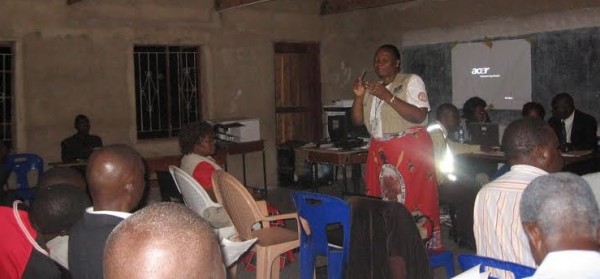 Tembo explaining to parties[/caption]
The two parties were wondering why Malawi Electoral Commission (MEC) officers who were at the polling centres brought the result forms with invalid contents such as signatories of some monitors.
According to the MCP district chairperson Emmanuel Khoma, MEC presiding Officers were not serious in filling the results form, claiming that the mistakes which have occurred are deliberate.
“It cannot be possible that the electoral body officials are coming here at the tally centre presenting the results without some valid information such as monitors signatures, no number of people who have casted their votes even the ballot papers they received at their poling centre as recommended,“ lamented Khoma.
“What does this imply to us as party officials? We can only conclude that MEC was not prepared in conducting this election or maybe they are just here to blindfold us that people have voted while they already have the winner in their mind, above all the MEC officials are coming here without any party monitors,” he added.
Concurring with Khoma, PP District Director of Elections Shambon Mchizi confronted the presiding Officers that they were threatening some monitors not be active in doing their work.
“I visited some of the polling centres monitors where complaining that they are being threatened by some officials hence most they were not involved in confirming the results,” said Mchizi.
Responding to the parties concerns the MEC commissioner Nancy Tembo apologized for the mistakes but described them as minor.
“Indeed our officials of Nkhwawa and Chankholombe polling centres forget to complete filling the result forms with some necessary information but what I can tell you is that those mistakes are minor ones a,” said Tembo.
Tembo blamed the party Officials for selecting monitors which were ignorant on most of the electoral process.
However, when results were announced indicating that Democratic Progressive Party (DPP) candidate Bydon Msiska had polled 1378 votes followed by PP candidate Langford Kanyimbo with 1107, AFORD 587, MCP 446, UDF 23 and Independent with 45 votes all parties left the premises only DPP members were present missing other members to sign the results as witnesses.
Nkhwawa ward had 11076 people who were expected to cast votes, but only 3616 turned up while 37 were null and void presenting 32.62949 percent of the electoral process.
Tembo explaining to parties[/caption]
The two parties were wondering why Malawi Electoral Commission (MEC) officers who were at the polling centres brought the result forms with invalid contents such as signatories of some monitors.
According to the MCP district chairperson Emmanuel Khoma, MEC presiding Officers were not serious in filling the results form, claiming that the mistakes which have occurred are deliberate.
“It cannot be possible that the electoral body officials are coming here at the tally centre presenting the results without some valid information such as monitors signatures, no number of people who have casted their votes even the ballot papers they received at their poling centre as recommended,“ lamented Khoma.
“What does this imply to us as party officials? We can only conclude that MEC was not prepared in conducting this election or maybe they are just here to blindfold us that people have voted while they already have the winner in their mind, above all the MEC officials are coming here without any party monitors,” he added.
Concurring with Khoma, PP District Director of Elections Shambon Mchizi confronted the presiding Officers that they were threatening some monitors not be active in doing their work.
“I visited some of the polling centres monitors where complaining that they are being threatened by some officials hence most they were not involved in confirming the results,” said Mchizi.
Responding to the parties concerns the MEC commissioner Nancy Tembo apologized for the mistakes but described them as minor.
“Indeed our officials of Nkhwawa and Chankholombe polling centres forget to complete filling the result forms with some necessary information but what I can tell you is that those mistakes are minor ones a,” said Tembo.
Tembo blamed the party Officials for selecting monitors which were ignorant on most of the electoral process.
However, when results were announced indicating that Democratic Progressive Party (DPP) candidate Bydon Msiska had polled 1378 votes followed by PP candidate Langford Kanyimbo with 1107, AFORD 587, MCP 446, UDF 23 and Independent with 45 votes all parties left the premises only DPP members were present missing other members to sign the results as witnesses.
Nkhwawa ward had 11076 people who were expected to cast votes, but only 3616 turned up while 37 were null and void presenting 32.62949 percent of the electoral process.

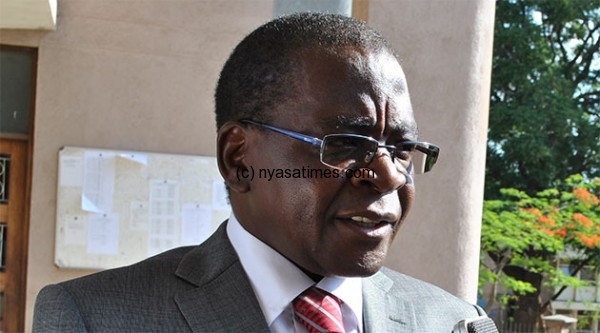 Justice Mbendera : There should be a research on the phenomenon of voter apathy[/caption]
Announcing the results, MEC chairperson Justice Maxon Raphael Mbendera said theelectoral body is “impressed” that this election had “all the required components of transparency, inclusiveness, freeness and fairness. “
He declared that the by- elections in all the five wards were “ free, fair and credible.”
Mbendera announced the results as follows:-
Khwawa Ward in Karonga had six candidates. With a total of 11,076 registered voters, 3,648 registered voters turned out. This represents 32.94 % voter turnout. There were 52 null and void votes. This represents 1.45 %. The results of the voting are as follows:
Justice Mbendera : There should be a research on the phenomenon of voter apathy[/caption]
Announcing the results, MEC chairperson Justice Maxon Raphael Mbendera said theelectoral body is “impressed” that this election had “all the required components of transparency, inclusiveness, freeness and fairness. “
He declared that the by- elections in all the five wards were “ free, fair and credible.”
Mbendera announced the results as follows:-
Khwawa Ward in Karonga had six candidates. With a total of 11,076 registered voters, 3,648 registered voters turned out. This represents 32.94 % voter turnout. There were 52 null and void votes. This represents 1.45 %. The results of the voting are as follows:
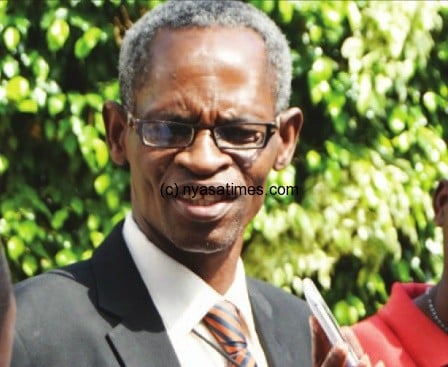
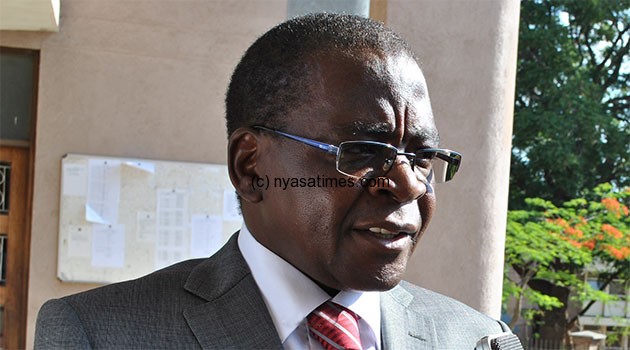

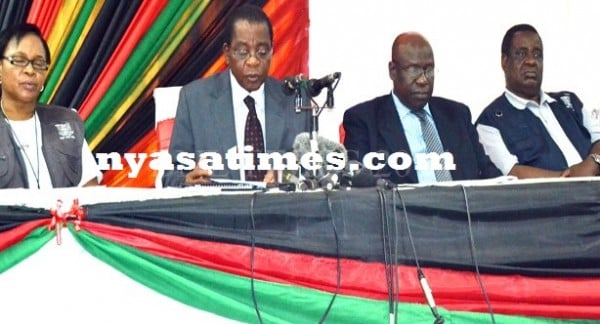 Mbendera ( 2nd from left) flanked by MEC Commissioners[/caption]
“Elections are a struggle and race to get power and disputes are bound to occur,” said Mbendera in Blantyre on Monday at Hotel Victoria.
He was speaking when he opened a five day training on Electoral Dispute Resolution based on the Building Resources in Democracy, Governance and Elections (BRIDGE) curriculum for MEC commissioners and staff and political party secretary generals.
Mbendera sais in other countries like Kenya, they have a tribunal on dispute resolution that is mandated to look into disputes among electoral stakeholders .
“In Malawi we do not have such a such a tribunal and when disputes arose between political parties and the Commission, the Commission arbitrates as it is mandated so by the law. When there are disputes between political parties, often times they seek solace in the courts and the media.
“When there are disputes between political parties and members, we rely on the internal party mechanism to sort them out, if not then the courts,” said Mbendera.
He therefore thanked the African Union Commission for financially supporting the workshop which he said will help MEC build its capacity on crosscutting issues in the electoral process.
“This training is very important as it will contribute to the preparedness for the 2019 elections. I am also delighted at the unique combination of international capacities that MEC is proud to provide to its Commissioners, management and stakeholders,” Mbendera said.
The Head, African Union Southern Region Office African Union Commission Dr. Salif Sada Sall said the trainings were a clear indication of African Union’s continued engagement in Malawi, particularly at the technical level to ensure that MEC continuously improves its capacity to manage elections.
“As you know, the African Union, together with other international organisations, observed the elections here in Malawi in 2014 and at the end of the mission made a number of recommendations aimed at enhancing the electoral process. It is important that most of those recommendations be implemented before the next elections,” Sall said.
The theme of the training is “Election Dispute Resolution.”
The training also seeks to improve team building and strong partnership between the MEC and political parties in Malawi towards building a peaceful and stable democratic society.
BRIDGE is a joint project of International IDEA, IFES, the Australian Electoral Commission, the UN Electoral Assistance Division and UNDP.
Mbendera ( 2nd from left) flanked by MEC Commissioners[/caption]
“Elections are a struggle and race to get power and disputes are bound to occur,” said Mbendera in Blantyre on Monday at Hotel Victoria.
He was speaking when he opened a five day training on Electoral Dispute Resolution based on the Building Resources in Democracy, Governance and Elections (BRIDGE) curriculum for MEC commissioners and staff and political party secretary generals.
Mbendera sais in other countries like Kenya, they have a tribunal on dispute resolution that is mandated to look into disputes among electoral stakeholders .
“In Malawi we do not have such a such a tribunal and when disputes arose between political parties and the Commission, the Commission arbitrates as it is mandated so by the law. When there are disputes between political parties, often times they seek solace in the courts and the media.
“When there are disputes between political parties and members, we rely on the internal party mechanism to sort them out, if not then the courts,” said Mbendera.
He therefore thanked the African Union Commission for financially supporting the workshop which he said will help MEC build its capacity on crosscutting issues in the electoral process.
“This training is very important as it will contribute to the preparedness for the 2019 elections. I am also delighted at the unique combination of international capacities that MEC is proud to provide to its Commissioners, management and stakeholders,” Mbendera said.
The Head, African Union Southern Region Office African Union Commission Dr. Salif Sada Sall said the trainings were a clear indication of African Union’s continued engagement in Malawi, particularly at the technical level to ensure that MEC continuously improves its capacity to manage elections.
“As you know, the African Union, together with other international organisations, observed the elections here in Malawi in 2014 and at the end of the mission made a number of recommendations aimed at enhancing the electoral process. It is important that most of those recommendations be implemented before the next elections,” Sall said.
The theme of the training is “Election Dispute Resolution.”
The training also seeks to improve team building and strong partnership between the MEC and political parties in Malawi towards building a peaceful and stable democratic society.
BRIDGE is a joint project of International IDEA, IFES, the Australian Electoral Commission, the UN Electoral Assistance Division and UNDP.

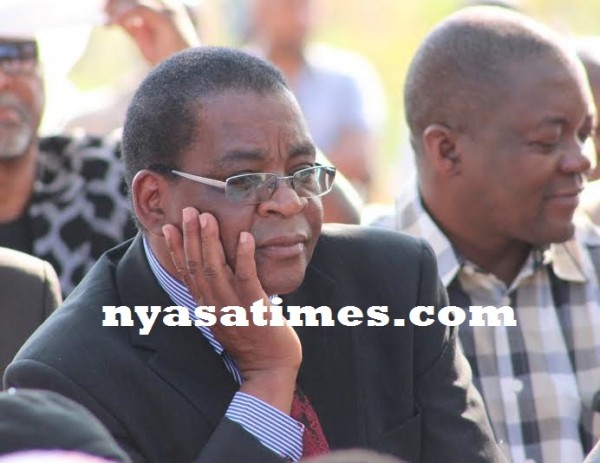 Justice Maxon Mbendera: MEC accused of management fraud[/caption]
According to the report, MEC were heard and responded to the audit query.
The report indicates that MEC paid K5 million duty on two vehicles sold to its chairman, Justice Maxon Mbendera and chief elections officer Willie Kalonga, a move auditors described as an act of management fraud.
The transaction cheated the taxpayers by contravening a well laid out government guideline which states that since government vehicles are bought duty free, upon disposal the buyer pays duty to Malawi Revenue Authority before ownership can be transferred.
However, MEC management fraudulently used taxpayers money for personal gain of Justice Mbendera by paying the full duty of K2,436,875 for Toyota land Cruiser Registration number TO2966 used by Mbendera; and K2,500,000 for another Toyota land cruiser registration number MJ3373 allocated to Kalonga.
MEC responded by claiming that under Section 3 of the Act, it has the mandate to make its own policy on disposal of all assets under their ownership.
The explainationwas parried away by the auditors when they challenged MEC to produce evidence of government approval of such policy that allows duty to be paid by government agencies on behalf of employees.
"This is management fraud that defrauded public funds for personal gains. Maintenance costs by MEC should be recovered from Justice Mbendera and Willie Kalonga," charges the report.
The audit report recommends further that the two vehicles be surrendered so that an appropriate valuation as they are deemed to have been disposed off at very low prices.
MEC management acted to defraud taxpayers by repairing and servicing the two vehicles to a tune of K744,976.10 before disposal.
The report further blames Toyata Malawi for colluding with MEC management to defraud the taxpayers by significantly undervaluing the two vehicles.
"The audit team made an effort to enquire from Toyota Malawi, Blantyre in order to establish the cause of undervaluation which was below or almost equal to assessed repair cost (K1, 419,000 offered value K1, 500,000 for Mbendera and K396, 854 for Kalonga who paid K385, 000) but the official who signed the valuation forms deliberately avoided meeting the auditors,” reads the report.
MEC management claimed that the Board of Survey did not find any anomaly with the valuation and sale of the vehicles.
The stance by MEC drew a recommendation from the auditors to recommend that Anti-Corruption Bureau be invited in to investigate the conduct of valuation the two vehicles.
Exit discussions held between the auditors and MEC management on 15th July 2015 included:
Willie Kalonga - chief executive officer
Lilie Longwe - deputy chief executive officer
George Khaki - director of administration and human resources
Khumbo Phiri - director of finance
Geoffrey Mbawala - director of internal audit
Edington Chilapondwa - procurement manager
But MEC issued a statement on Monday after a
Justice Maxon Mbendera: MEC accused of management fraud[/caption]
According to the report, MEC were heard and responded to the audit query.
The report indicates that MEC paid K5 million duty on two vehicles sold to its chairman, Justice Maxon Mbendera and chief elections officer Willie Kalonga, a move auditors described as an act of management fraud.
The transaction cheated the taxpayers by contravening a well laid out government guideline which states that since government vehicles are bought duty free, upon disposal the buyer pays duty to Malawi Revenue Authority before ownership can be transferred.
However, MEC management fraudulently used taxpayers money for personal gain of Justice Mbendera by paying the full duty of K2,436,875 for Toyota land Cruiser Registration number TO2966 used by Mbendera; and K2,500,000 for another Toyota land cruiser registration number MJ3373 allocated to Kalonga.
MEC responded by claiming that under Section 3 of the Act, it has the mandate to make its own policy on disposal of all assets under their ownership.
The explainationwas parried away by the auditors when they challenged MEC to produce evidence of government approval of such policy that allows duty to be paid by government agencies on behalf of employees.
"This is management fraud that defrauded public funds for personal gains. Maintenance costs by MEC should be recovered from Justice Mbendera and Willie Kalonga," charges the report.
The audit report recommends further that the two vehicles be surrendered so that an appropriate valuation as they are deemed to have been disposed off at very low prices.
MEC management acted to defraud taxpayers by repairing and servicing the two vehicles to a tune of K744,976.10 before disposal.
The report further blames Toyata Malawi for colluding with MEC management to defraud the taxpayers by significantly undervaluing the two vehicles.
"The audit team made an effort to enquire from Toyota Malawi, Blantyre in order to establish the cause of undervaluation which was below or almost equal to assessed repair cost (K1, 419,000 offered value K1, 500,000 for Mbendera and K396, 854 for Kalonga who paid K385, 000) but the official who signed the valuation forms deliberately avoided meeting the auditors,” reads the report.
MEC management claimed that the Board of Survey did not find any anomaly with the valuation and sale of the vehicles.
The stance by MEC drew a recommendation from the auditors to recommend that Anti-Corruption Bureau be invited in to investigate the conduct of valuation the two vehicles.
Exit discussions held between the auditors and MEC management on 15th July 2015 included:
Willie Kalonga - chief executive officer
Lilie Longwe - deputy chief executive officer
George Khaki - director of administration and human resources
Khumbo Phiri - director of finance
Geoffrey Mbawala - director of internal audit
Edington Chilapondwa - procurement manager
But MEC issued a statement on Monday after a 
 This is irritating because MEC is, without doubt, the most supreme watchdog over democracy in Malawi, mandated as it is with the sacred duty of safeguarding our democracy through the periodic conduct of free and fair elections.
MEC’s duty is sacred for several reasons. First and foremost, poor management of elections has led to eruption of civil wars and bloodshed in various countries. We will not cite examples.
Now, an institution which holds the fate of a country and lives of a nation at one point or another is one that obviously has a critical role.
This means that such an institution should operate in manner that inspires confidence at all times, in all its dealings and its operations and should stand scrutiny – if not hold the gold standard – with respect to transparency and accountability.
Secondly, looking at history or better still, if we borrow the overused ‘Malawi is a God fearing country’cliché and wax Biblical, the sacredness of the role of MEC becomes even clearer.
We read in the Holy Bible and even in the Holy Quran of one Samuel. Samuel was a man chosen for God, from his miraculous birth until his death. He served in several important positions during his life, earning God's favour because he knew how to obey.
Samuel's story began with a barren woman, Hannah, praying to God for a child. The Bible says "the Lord remembered her," and she became pregnant.
She named the baby Samuel, which means "the Lord hears." When the boy was weaned, Hannah presented him to God at Shiloh, in the care of Eli the high priest.
Samuel grew in wisdom and became a prophet. Following a great Philistine victory over the Israelites, Samuel became a judge and rallied the nation against the Philistines at Mizpah. He established his house at Ramah, riding a circuit to various cities where he settled the people's disputes.
Unfortunately, Samuel's sons, Joel and Abijah, who had been delegated to follow him as judges, were corrupt, so the people demanded a king.
And it came to pass that Samuel listened to God and anointed the first king of Israel, a tall, handsome Benjaminite named Saul. When Saul angered the Lord, Saul anointed King David, one of the seven sons of Jesse. The rest is history.
Now, imagine that Samuel was a character who double-claimed allowances, bought public donkeys in a manner that lacked transparency, and could not account for public resources. Would anyone have taken him seriously?
MEC is the king-maker in Malawi and if Malawians are to accept and respect the leaders that claim victory after processes managed by MEC, MEC ought to be the most transparent, trustworthy and accountable institution in Malawi.
Going by the report of the Central Internal Audit Unit (CIAU), MEC has been desperately found wanting.
We will not repeat what the articles have already summarized suffice to say that typical of a fish’s decaying from the top; Justice Maxon Mbendera, the MEC Chairperson, apparently made his own rules and sold a public car at a giveaway price to himself.
This is something that Samuel would obviously have frowned upon. And check this: Samuel’s own sons were passed over as Judges because of such corrupt behaviours.
Coming to Willie Kalonga, the Chief Elections Officer, according to the audit report, he has also been up to his neck plundering MEC resources.
And again, some commissioners are implicated and were partaking the looting jamboree at this time when millions of Malawians will, according to the State President, face starvation.
This is to say the least, a national disgrace.
In civilized countries, Justice Maxon Mbendera, the Chairperson; Willie Kalonga, the Chief Elections Officer, and the Commissioners would have honourably resigned. But Malawi being what it is, they are claiming to be “innocent”. If these guys are innocent, then Oswald Lutepo deserves a sainthood!
Look at it from this perspective: MEC leadership despite knowing that public resources are subjected to rigorous audits, went on to steal and loot. Now what do these characters do with our votes, which as you know are not audited at all? God forbid!
To conclude, because an electoral commission inundated with compromised characters is one that cannot be trusted to conduct free and fair elections, we at the Nyasa Times, demand the commission’s immediate dissolution and that the Anti-Corruption Bureau (ACB) should seal MEC and dig deeper because, an audit being an audit, the findings might just be the tip of an iceberg.
Failure to do this means that we are not serious about democracy and peace in Malawi.
This is irritating because MEC is, without doubt, the most supreme watchdog over democracy in Malawi, mandated as it is with the sacred duty of safeguarding our democracy through the periodic conduct of free and fair elections.
MEC’s duty is sacred for several reasons. First and foremost, poor management of elections has led to eruption of civil wars and bloodshed in various countries. We will not cite examples.
Now, an institution which holds the fate of a country and lives of a nation at one point or another is one that obviously has a critical role.
This means that such an institution should operate in manner that inspires confidence at all times, in all its dealings and its operations and should stand scrutiny – if not hold the gold standard – with respect to transparency and accountability.
Secondly, looking at history or better still, if we borrow the overused ‘Malawi is a God fearing country’cliché and wax Biblical, the sacredness of the role of MEC becomes even clearer.
We read in the Holy Bible and even in the Holy Quran of one Samuel. Samuel was a man chosen for God, from his miraculous birth until his death. He served in several important positions during his life, earning God's favour because he knew how to obey.
Samuel's story began with a barren woman, Hannah, praying to God for a child. The Bible says "the Lord remembered her," and she became pregnant.
She named the baby Samuel, which means "the Lord hears." When the boy was weaned, Hannah presented him to God at Shiloh, in the care of Eli the high priest.
Samuel grew in wisdom and became a prophet. Following a great Philistine victory over the Israelites, Samuel became a judge and rallied the nation against the Philistines at Mizpah. He established his house at Ramah, riding a circuit to various cities where he settled the people's disputes.
Unfortunately, Samuel's sons, Joel and Abijah, who had been delegated to follow him as judges, were corrupt, so the people demanded a king.
And it came to pass that Samuel listened to God and anointed the first king of Israel, a tall, handsome Benjaminite named Saul. When Saul angered the Lord, Saul anointed King David, one of the seven sons of Jesse. The rest is history.
Now, imagine that Samuel was a character who double-claimed allowances, bought public donkeys in a manner that lacked transparency, and could not account for public resources. Would anyone have taken him seriously?
MEC is the king-maker in Malawi and if Malawians are to accept and respect the leaders that claim victory after processes managed by MEC, MEC ought to be the most transparent, trustworthy and accountable institution in Malawi.
Going by the report of the Central Internal Audit Unit (CIAU), MEC has been desperately found wanting.
We will not repeat what the articles have already summarized suffice to say that typical of a fish’s decaying from the top; Justice Maxon Mbendera, the MEC Chairperson, apparently made his own rules and sold a public car at a giveaway price to himself.
This is something that Samuel would obviously have frowned upon. And check this: Samuel’s own sons were passed over as Judges because of such corrupt behaviours.
Coming to Willie Kalonga, the Chief Elections Officer, according to the audit report, he has also been up to his neck plundering MEC resources.
And again, some commissioners are implicated and were partaking the looting jamboree at this time when millions of Malawians will, according to the State President, face starvation.
This is to say the least, a national disgrace.
In civilized countries, Justice Maxon Mbendera, the Chairperson; Willie Kalonga, the Chief Elections Officer, and the Commissioners would have honourably resigned. But Malawi being what it is, they are claiming to be “innocent”. If these guys are innocent, then Oswald Lutepo deserves a sainthood!
Look at it from this perspective: MEC leadership despite knowing that public resources are subjected to rigorous audits, went on to steal and loot. Now what do these characters do with our votes, which as you know are not audited at all? God forbid!
To conclude, because an electoral commission inundated with compromised characters is one that cannot be trusted to conduct free and fair elections, we at the Nyasa Times, demand the commission’s immediate dissolution and that the Anti-Corruption Bureau (ACB) should seal MEC and dig deeper because, an audit being an audit, the findings might just be the tip of an iceberg.
Failure to do this means that we are not serious about democracy and peace in Malawi.

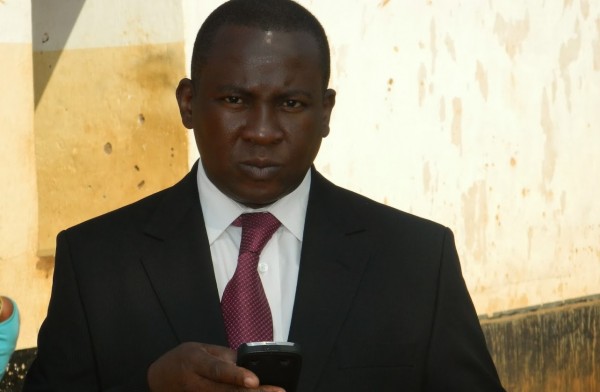 Kalonga: Refuses to comment, saying the audit is not final[/caption]
The fraud allegations in the report before the Secretary to the Treasury and donor community, shows Kalonga had access to K118, 667,404.44 and made internal transfers between April 2014 to February 2015 not indicated with accounts transferred to in cashbooks.
A special secret code named CEO Account at MSB opened in March 2014 number 1024883104001 was overdrawn by K8, 093,858.33 on 31/12/2014 in the bank while many transacts were not entered in the cashbook which was overdrawn by K33,819,387.69.
The abuse on the account cost the public K20, 634,732.20 in accumulated bank charges and interest which were also missing in the cashbook.
MEC chairperson Maxon Mbendera, who is also a judge of the Malawi Supreme Court of Appeal, was a recipient of the mysterious cash transfers which the management of the electoral body failed to produce documentation detailing purpose of payment.
Kalonga’s account received K37, 191,268.37 of the transfers between 14/07/2014 to 08/10/2014 with no proper accounting records and payments, the audit report reads.
“We have noted the observation and promise to make a thorough follow up to trace the documents to account for the transferred funds. We believe that weakness in recording and keeping of records might have caused the event,” MEC management defended their position when they responded to the audit query.
MEC further blamed newly recruited staff in accounts who did not receive orientation training in public accounting system training.
“All the experienced staff were redeployed to non-financial duties after the fraud scandal that was reported by private auditors in the past,” MEC was quoted verbatim in its defence.
“Kalonga is accused of wasting public resources under the pretext that MEC is an independent corporate body as if it operates on its own generated income,” he report notes.
Kalonga has since refused to comment saying the audit report is not final.
Ministry of Finance, which carried out the audit through the Central Audit Unit, explained this week the audit was carried “because MEC’s large budget vis a vis the national budget posed a higher fiscal risk”.
On procurement, the auditors reported that they did not find evidence of a claim of payment for supply of goods by a Tanzanian company, SCI, amounting to K16.6 million; goods procured outside procurement plan and budget amounting to K40.6 million and procurement without Office of the Director of Public Procurement amounting to K526.6 million.
Kalonga: Refuses to comment, saying the audit is not final[/caption]
The fraud allegations in the report before the Secretary to the Treasury and donor community, shows Kalonga had access to K118, 667,404.44 and made internal transfers between April 2014 to February 2015 not indicated with accounts transferred to in cashbooks.
A special secret code named CEO Account at MSB opened in March 2014 number 1024883104001 was overdrawn by K8, 093,858.33 on 31/12/2014 in the bank while many transacts were not entered in the cashbook which was overdrawn by K33,819,387.69.
The abuse on the account cost the public K20, 634,732.20 in accumulated bank charges and interest which were also missing in the cashbook.
MEC chairperson Maxon Mbendera, who is also a judge of the Malawi Supreme Court of Appeal, was a recipient of the mysterious cash transfers which the management of the electoral body failed to produce documentation detailing purpose of payment.
Kalonga’s account received K37, 191,268.37 of the transfers between 14/07/2014 to 08/10/2014 with no proper accounting records and payments, the audit report reads.
“We have noted the observation and promise to make a thorough follow up to trace the documents to account for the transferred funds. We believe that weakness in recording and keeping of records might have caused the event,” MEC management defended their position when they responded to the audit query.
MEC further blamed newly recruited staff in accounts who did not receive orientation training in public accounting system training.
“All the experienced staff were redeployed to non-financial duties after the fraud scandal that was reported by private auditors in the past,” MEC was quoted verbatim in its defence.
“Kalonga is accused of wasting public resources under the pretext that MEC is an independent corporate body as if it operates on its own generated income,” he report notes.
Kalonga has since refused to comment saying the audit report is not final.
Ministry of Finance, which carried out the audit through the Central Audit Unit, explained this week the audit was carried “because MEC’s large budget vis a vis the national budget posed a higher fiscal risk”.
On procurement, the auditors reported that they did not find evidence of a claim of payment for supply of goods by a Tanzanian company, SCI, amounting to K16.6 million; goods procured outside procurement plan and budget amounting to K40.6 million and procurement without Office of the Director of Public Procurement amounting to K526.6 million.
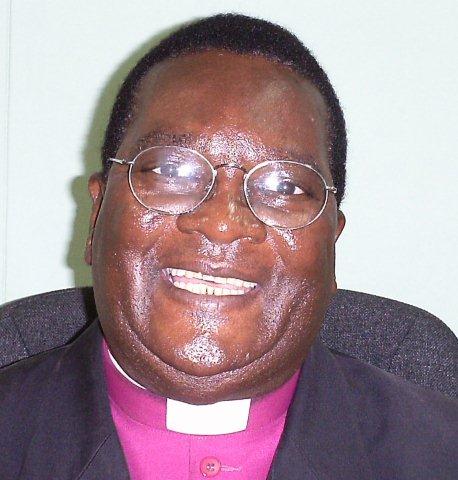
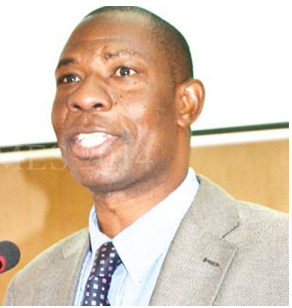
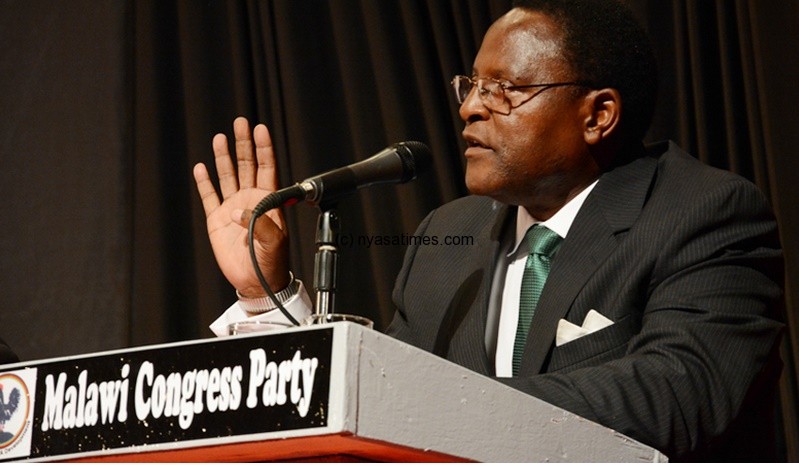
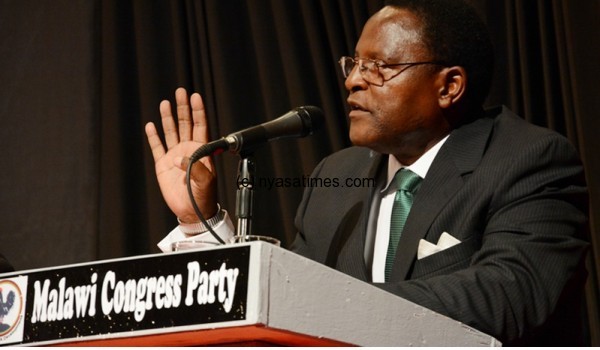 Chakwera: Advocates for universal legitimacy[/caption]
Where in a general election there is no candidate who gather 50 percent, there should be a run off for the top two candidates to determine the winner.
He said the new law will ensure that Malawi no longer is ruled by “a President rules with few votes” but rather a leader who has “universal support”.
Chakwera, who is also leader of opposition in parliament, said there was also need to extend time limit when elections results are to be announced, saying they should be announced after all queries have been attended to.
"The Malawi Electoral Commission should announce the results from constiruencies in the presence of both local and international observers," said Chakwera.
He said these electoral reforms are a matter of urgency and warned if the government fails to table them, the MCP would bring the bill through the private member's bill.
Chakwera said if election were held today, the DPP would be kicked out of government but said there was need to put in place electoral laws that would bring credibility to the poll result.
Malawi’s interfaith organization, Public Affairs Committee (PAC) have recognised that 50 per cent plus one rule guarantees the leader acceptable, popular, majoritarian mandate.
Democratic Progressive Party (DPP) leader Peter Mutharika was declared the winner of Malawi’s May 20, 2014 presidential election after defeating Joyce Banda.
Mutharika, the brother of former president Bingu wa Mutharika, took 36.4 percent of the votes cast, Lazarus Chakwera of MCP garnered 27.8 percent of the vote and Banda’s 20.2 percent.
Chakwera: Advocates for universal legitimacy[/caption]
Where in a general election there is no candidate who gather 50 percent, there should be a run off for the top two candidates to determine the winner.
He said the new law will ensure that Malawi no longer is ruled by “a President rules with few votes” but rather a leader who has “universal support”.
Chakwera, who is also leader of opposition in parliament, said there was also need to extend time limit when elections results are to be announced, saying they should be announced after all queries have been attended to.
"The Malawi Electoral Commission should announce the results from constiruencies in the presence of both local and international observers," said Chakwera.
He said these electoral reforms are a matter of urgency and warned if the government fails to table them, the MCP would bring the bill through the private member's bill.
Chakwera said if election were held today, the DPP would be kicked out of government but said there was need to put in place electoral laws that would bring credibility to the poll result.
Malawi’s interfaith organization, Public Affairs Committee (PAC) have recognised that 50 per cent plus one rule guarantees the leader acceptable, popular, majoritarian mandate.
Democratic Progressive Party (DPP) leader Peter Mutharika was declared the winner of Malawi’s May 20, 2014 presidential election after defeating Joyce Banda.
Mutharika, the brother of former president Bingu wa Mutharika, took 36.4 percent of the votes cast, Lazarus Chakwera of MCP garnered 27.8 percent of the vote and Banda’s 20.2 percent.

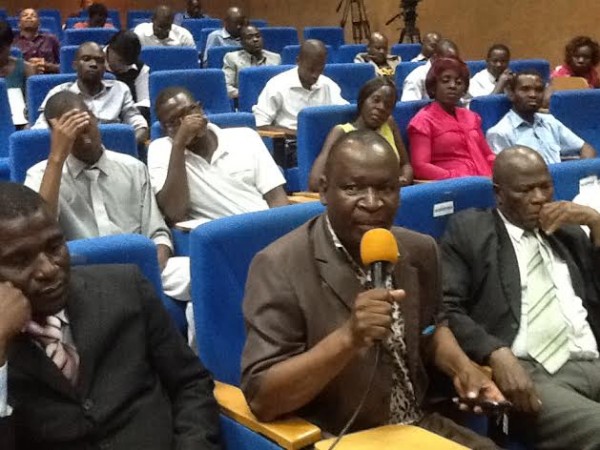 Contirbuting at Bwalo la Mzika[/caption]
Citizen Alliance in partnership with Zodiak radio on Tuesday through Bwalo la Mzika gave the citizenry a platform to comment on social, political and economic woes which Malawi as a country is going through.
During the meeting, Citizen Alliance also gave a report on what people of Balaka said when the Alliance gave another opportunity for them to discuss freely of the same issues and give solutions to problems.
During the debate, Aaron Kafakamoyo said he is surprised that MEC is still headquartered in Blantyre and yet all other organisations have shifted to Lilongwe.
"This is very surprising indeed, we have always been saying of changing the way of doing businesses by cutting costs why can we not shift MEC from Blantyre to Lilongwe. This will make more economic sense because it doesn't make any sense for a drivers to cruise from Blantyre to Karonga to supply electoral materials," he said
Kafakamoyo said people from the south will have no administrative challenges in terms of accessing the electoral materials than people from the north and those coming from the central region.
Citizen Alliance Executive Secretary, Wilson Asibu there is need for the leadership to be accountable to its people on various governance issues.
Bwalo La Nzika is a State of Union funded project and Malawi Economic Justice Network (MEJN) aimed at empowering local citizens to debate on issues affecting their nation and proposing solutions to Government.
SOTU collaborates with Government of Malawi to keep adept track of how the Government is complying with African Union Charters, Treaties, and Protocols in respect of ratification, domestication and implementation of the same.
Contirbuting at Bwalo la Mzika[/caption]
Citizen Alliance in partnership with Zodiak radio on Tuesday through Bwalo la Mzika gave the citizenry a platform to comment on social, political and economic woes which Malawi as a country is going through.
During the meeting, Citizen Alliance also gave a report on what people of Balaka said when the Alliance gave another opportunity for them to discuss freely of the same issues and give solutions to problems.
During the debate, Aaron Kafakamoyo said he is surprised that MEC is still headquartered in Blantyre and yet all other organisations have shifted to Lilongwe.
"This is very surprising indeed, we have always been saying of changing the way of doing businesses by cutting costs why can we not shift MEC from Blantyre to Lilongwe. This will make more economic sense because it doesn't make any sense for a drivers to cruise from Blantyre to Karonga to supply electoral materials," he said
Kafakamoyo said people from the south will have no administrative challenges in terms of accessing the electoral materials than people from the north and those coming from the central region.
Citizen Alliance Executive Secretary, Wilson Asibu there is need for the leadership to be accountable to its people on various governance issues.
Bwalo La Nzika is a State of Union funded project and Malawi Economic Justice Network (MEJN) aimed at empowering local citizens to debate on issues affecting their nation and proposing solutions to Government.
SOTU collaborates with Government of Malawi to keep adept track of how the Government is complying with African Union Charters, Treaties, and Protocols in respect of ratification, domestication and implementation of the same.

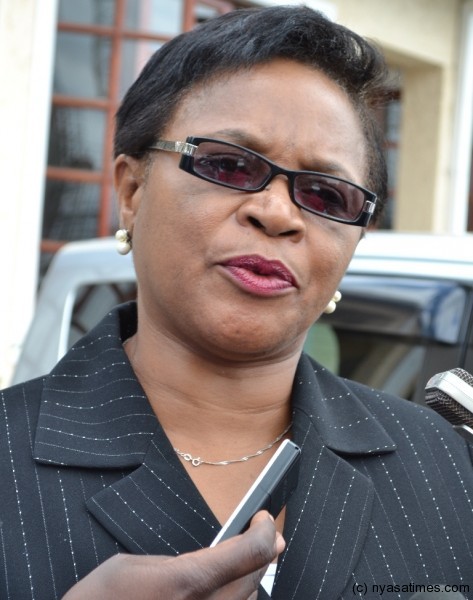 Tembo: Biometric[/caption]
Nancy Tembo, MEC commissioner said Friday in Blantyre during a stakeholders meeting that the commission will be calling for a national conference in December to tackle all election challenges.
"In February, the National Registration Bureau will be piloting the exercise. The whole national ID project will be rolled out in 2017, giving us enough time to make preparations," she said.
Tembo said MEC will buy machines that will easily capture details from national IDs that include the contentious nationality and age.
She said the process will also cut down the budget for elections as fewer staff than ever before will e hired for the registration exercise.
Tembo also said a taskforce that has been formed to look into electoral issues will also tackle proposals from Malawi Congress Party(MCP) president Lazarus Chakwera's proposed legislation of 50-plus-one election victory for a President.
President Peter Mutharika amassed 39 per cent of the six million vote in the 2014 poll that put Chakwera on second position having missed Kamuzu Palace with just a 600000 plus vote to Mutharika.
UDF spokesman Ken Ndanga hailed the meeting saying MEC and other poll stakeholders should always engage in discussion to improve the way elections are managed in the country.
Ndanga said there is room for improvement on the way elections are conducted.
Tembo: Biometric[/caption]
Nancy Tembo, MEC commissioner said Friday in Blantyre during a stakeholders meeting that the commission will be calling for a national conference in December to tackle all election challenges.
"In February, the National Registration Bureau will be piloting the exercise. The whole national ID project will be rolled out in 2017, giving us enough time to make preparations," she said.
Tembo said MEC will buy machines that will easily capture details from national IDs that include the contentious nationality and age.
She said the process will also cut down the budget for elections as fewer staff than ever before will e hired for the registration exercise.
Tembo also said a taskforce that has been formed to look into electoral issues will also tackle proposals from Malawi Congress Party(MCP) president Lazarus Chakwera's proposed legislation of 50-plus-one election victory for a President.
President Peter Mutharika amassed 39 per cent of the six million vote in the 2014 poll that put Chakwera on second position having missed Kamuzu Palace with just a 600000 plus vote to Mutharika.
UDF spokesman Ken Ndanga hailed the meeting saying MEC and other poll stakeholders should always engage in discussion to improve the way elections are managed in the country.
Ndanga said there is room for improvement on the way elections are conducted.